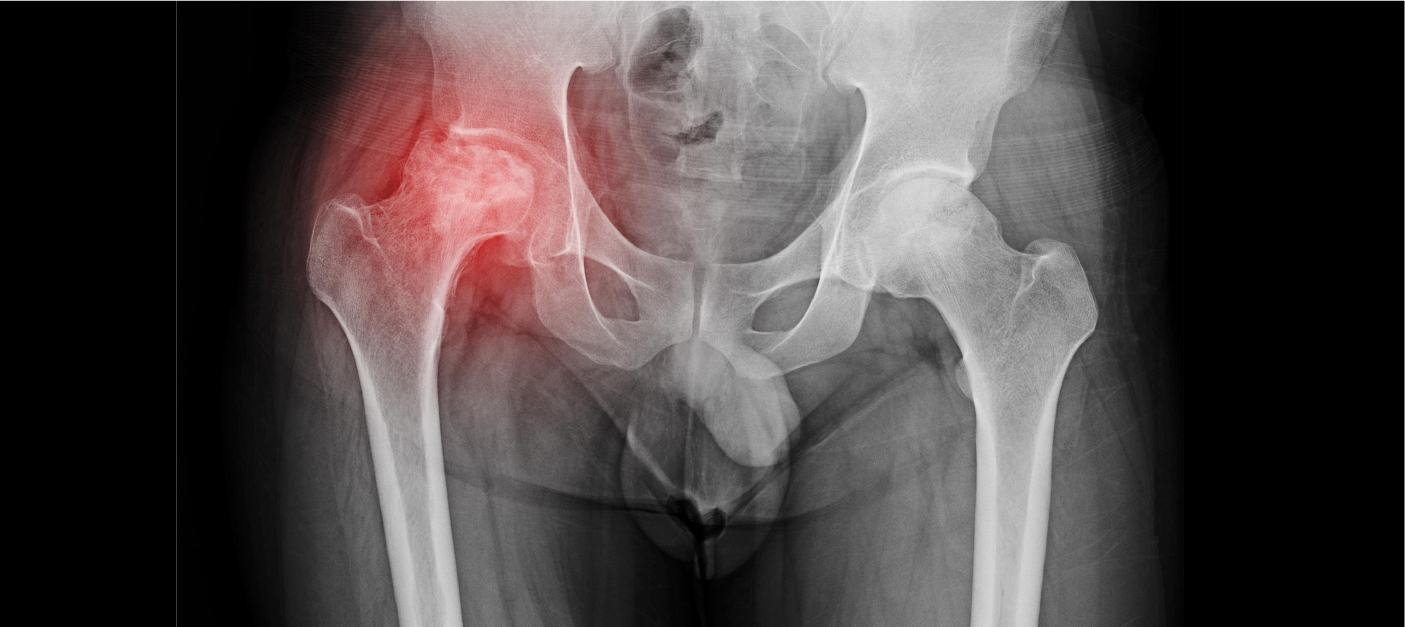
Avascular necrosis(AVN) is a painful bone disease that can impair your movement and worsen over time. It happens when the blood supply to one of your bones is interrupted. Radiation therapy, hip dislocations, fractured bones, and alcohol abuse are among the causes.
Avascular necrosis is also known as osteonecrosis, aseptic necrosis ischemic bone necrosis, or bone infarction. Avascular necrosis can lead to joint pain, particularly in the hip. If treatment is not received, the joints may gradually collapse and the bones lose their smooth shape. Osteoarthritis may occur. A joint replacement procedure may be necessary for some AVN patients.
Also Read: Top 10 Knee Replacement Surgeons In Delhi: Dr. Ishwar Bohra
Avascular necrosis is a condition that happens when the blood supply to the bone is cut off, either permanently or just temporarily. The bone collapses as the bone tissue dies from lack of blood flow. The surface of a joint may collapse if avascular necrosis develops close to it. Any bone may experience this disease. It usually occurs in the tips of long bones. It could impact one bone at a time, multiple bones simultaneously, or various bones at different times.
The following causes will result in avascular necrosis:
Also Read: Knee Pain Treatment in Delhi, India: A Complete Guide
Avascular necrosis might present with symptoms that mimic other medical conditions or issues with the bones. For a diagnosis, always consult your healthcare provider.
The most common symptoms of avascular necrosis are listed below. However, each person may experience a unique set of symptoms. These may include:
Also Read: Top 5 Mistakes After Knee Replacement
In addition to a thorough medical history and physical examination, you might undergo one or more of the subsequent tests:
Also Read: Top 10 Orthopedic Doctor In Delhi
Your healthcare professional will decide on an avascular necrosis treatment plan based on the following factors:
Restoring function and preventing further bone or joint injury are the main objectives of treatment. To prevent joints from degenerating, treatments are required, which include:
Also Read: How Long are You on Bed Rest After a Hip Replacement?
The following are the lifestyle modifications that help to prevent avascular necrosis:
Depending on a variety of factors, such as the kind of necrosis present, the severity of the issue, the patient's health, the doctor's fee, etc., different persons with avascular necrosis undergo different therapies.
If you're ever in Delhi, see top orthopedic surgeon Dr Ishwar Bohra for tailored care about your avascular necrosis issues. Make an appointment for your consultation immediately!
Avascular necrosis is a painful disorder that can seriously impair your quality of life. If you take any medications or have any diseases that enhance your risk of developing avascular necrosis, talk to your healthcare professional. Your healthcare practitioner will go over any symptoms that could indicate avascular necrosis. Treatment and early diagnosis can slow the progression of the disease.
Get individualized treatment from the leading orthopedic surgeon in Delhi, Dr. Ishwar Bohra, for your avascular necrosis problems. Schedule your consultation right now!
Q: What is the best treatment for avascular necrosis?
A: Most patients with early-stage AVN of the hip find that core decompression, the most widely used treatment, successfully improves their discomfort and can even stop the problem from progressing in many circumstances. However, between 25% and 30% of patients who had this treatment eventually required a total hip replacement.
Q: Does avascular necrosis benefit from walking?
A: It will be prescribed to perform exercises that work the entire lower limb, like simultaneous squats on both legs or solely on one leg. For the purpose of enhancing everyday activities like walking and stair climbing, exercises that target the muscles while standing are the most beneficial.
Q: What is the root cause of avascular necrosis?
A: Injury, medication use, or alcohol consumption can all lead to avascular necrosis. Joint discomfort and restricted range of motion are possible symptoms. To increase functionality or prevent additional damage to the damaged bone or joint, medications, assistive devices, or surgery may be employed.
Staying abreast with the latest information is the best way to combat diseases in early stages and live a healthy life. Read the latest news & updates here to learn about the recent advancements in joint care and therapeutics.


